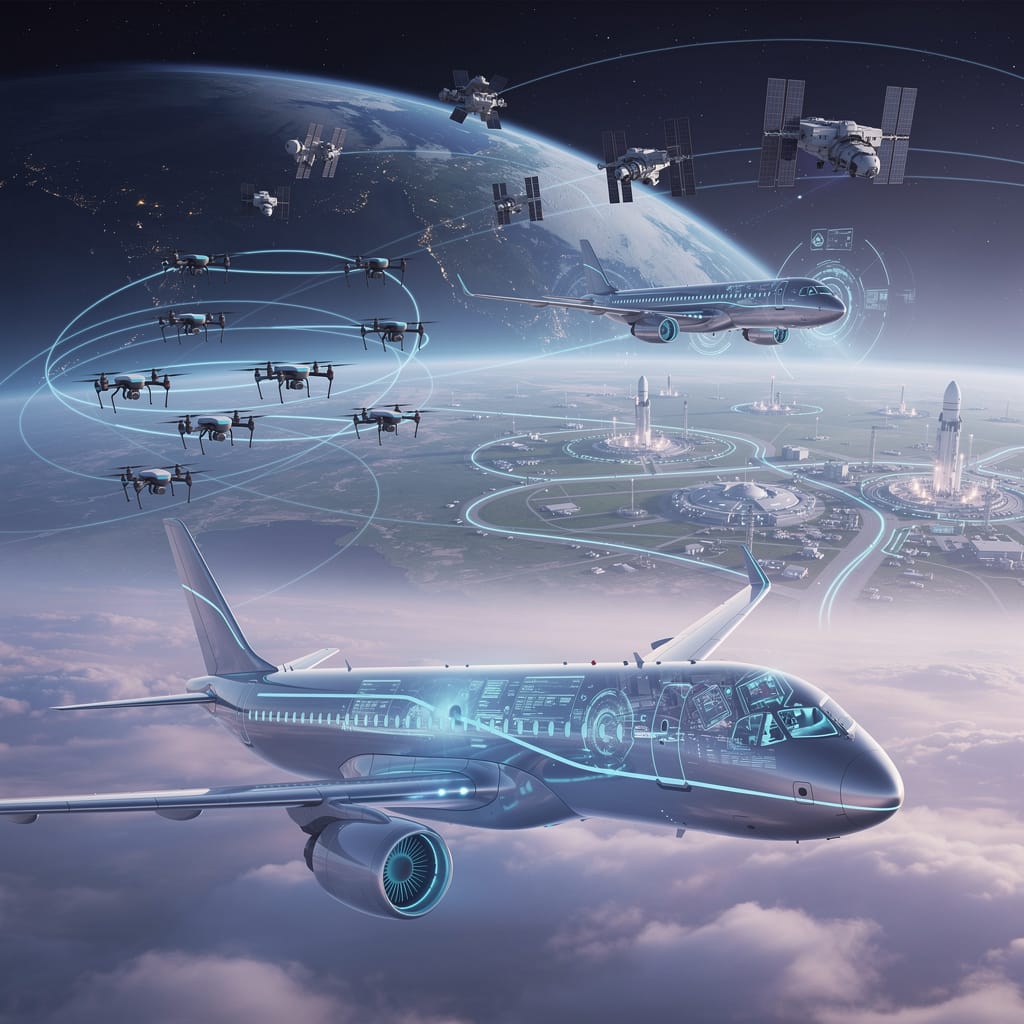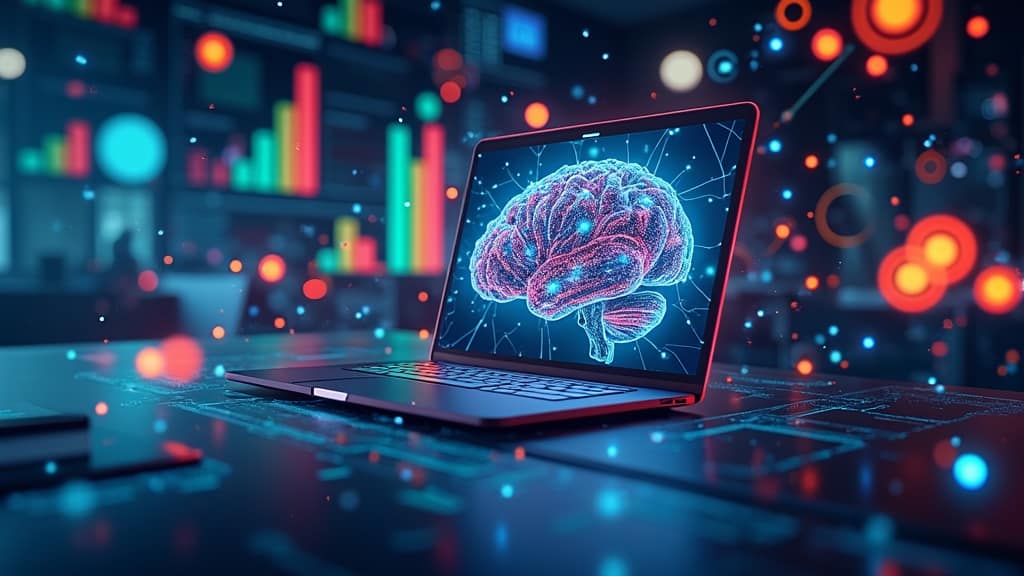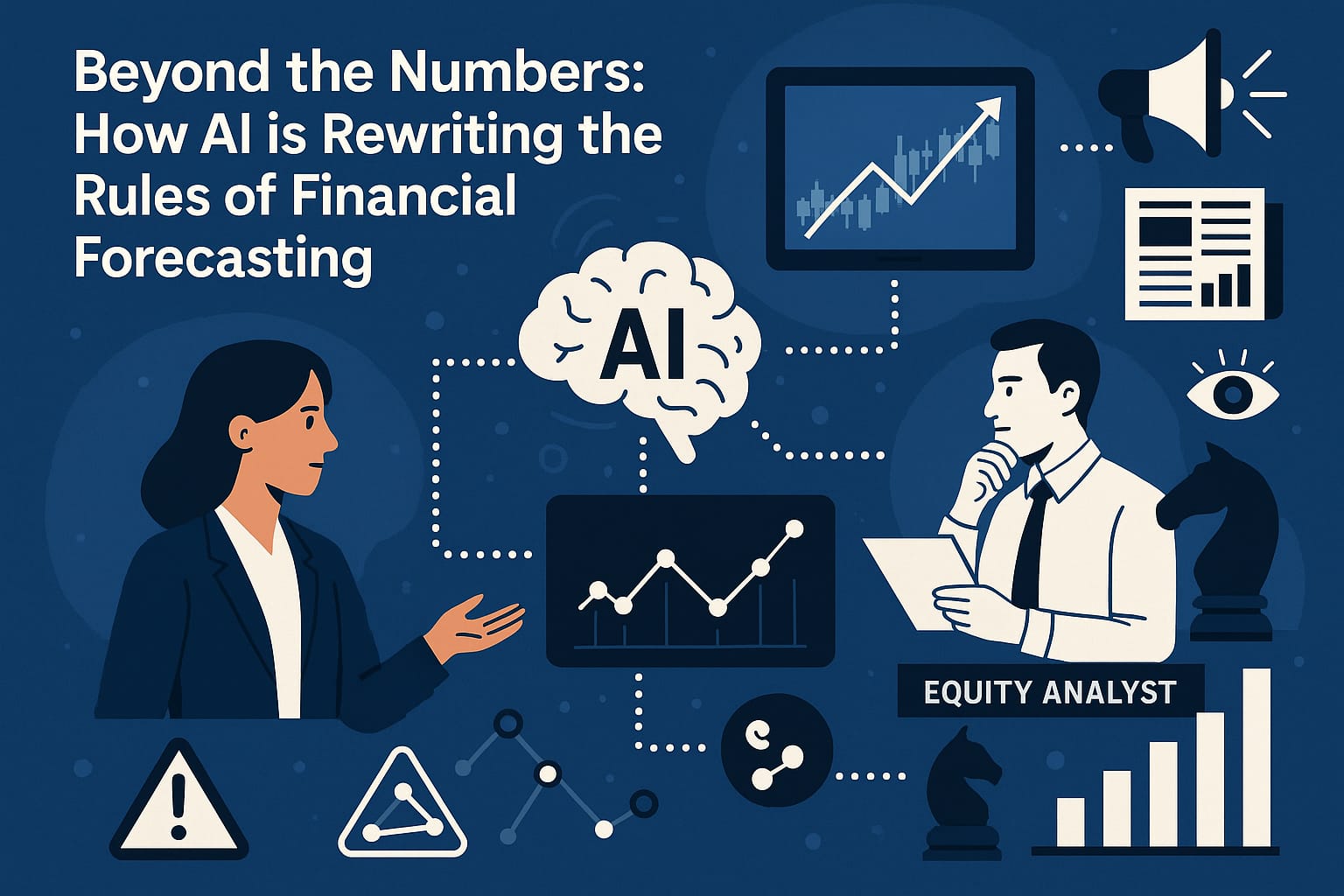Actual questions regarding AI and Economy both on national and international levels
How will the rise of AI impact the global economy in the long term?
The rise of AI is expected to have a significant impact on the global economy in the long term. Some potential benefits of AI include increased productivity, efficiency, and innovation in various industries. For example, AI can be used to automate repetitive tasks, which can free up workers to focus on higher-level tasks that require creativity and critical thinking. Additionally, AI can be used to analyze large amounts of data and identify patterns and insights that would be difficult or impossible for humans to detect. This can lead to more informed decision-making in areas such as finance, healthcare, and marketing.
However, there are also potential drawbacks to the widespread adoption of AI in the economy. One concern is that AI could displace workers in certain industries, leading to job loss and economic inequality. Additionally, there is a risk that AI systems could be biased or discriminatory, perpetuating existing social and economic inequalities. Finally, there is a risk that the concentration of power and wealth in the hands of a few large tech companies could lead to economic and political domination.
The impact of AI on the global economy will depend on a range of factors, including the rate of technological development, the extent of adoption across different industries, and the policies and regulations put in place to address potential risks and challenges.
What are the potential economic benefits and drawbacks of widespread AI adoption?
Widespread adoption of AI has the potential to bring significant economic benefits in a range of industries. AI can increase productivity and efficiency, lower costs, improve product quality and customer satisfaction, and generate new revenue streams. For example, in the healthcare industry, AI can be used to diagnose diseases, analyze medical images, and develop personalized treatment plans. In the financial industry, AI can be used to automate financial tasks, detect fraud, and provide personalized investment advice.
However, there are also potential economic drawbacks to the adoption of AI. One of the most significant concerns is the potential for job displacement, particularly in industries that rely heavily on repetitive or routine tasks that can be automated with AI. This can lead to economic inequality, as workers who are displaced by AI may struggle to find new jobs that pay the same wages and provide the same benefits. Additionally, there is a risk that the concentration of power and wealth in the hands of a few large tech companies could lead to economic and political domination, with negative consequences for small businesses and individual consumers.
The economic benefits and drawbacks of widespread AI adoption will depend on a range of factors, including the specific applications of AI, the rate of adoption across different industries, and the policies and regulations put in place to address potential risks and challenges. It is important for governments, businesses, and individuals to carefully consider the potential impacts of AI on the economy and take steps to mitigate negative consequences while promoting the potential benefits.
How will AI change the nature of work and the labor market in different sectors and industries?
AI is expected to change the nature of work and the labor market in a range of industries. In some cases, AI will be used to automate routine or repetitive tasks, which can lead to job displacement for workers who perform those tasks. However, in many cases, AI will be used to augment and enhance human work, rather than replace it. For example, in the manufacturing industry, AI can be used to improve quality control, optimize supply chain management, and enhance worker safety, among other applications.
AI is also expected to create new jobs and industries, particularly in areas such as data analysis, software development, and AI system design and maintenance. These jobs will require new skills and training, and may require workers to adapt to new roles and responsibilities. Additionally, AI is expected to create new opportunities for remote work, flexible scheduling, and other forms of work-life balance, which can have positive effects on worker well-being and job satisfaction.
The impact of AI on the nature of work and the labor market will depend on a range of factors, including the rate of technological development, the extent of adoption across different industries, and the policies and regulations put in place to address potential risks and challenges. It is important for governments, businesses, and individuals to carefully consider the potential impacts of AI on the labor market and take steps to ensure that workers are able to adapt to changing job requirements and maintain their economic security and well-being.
What are the ethical and social implications of using AI to automate jobs and tasks, and how can we mitigate negative impacts on workers and society?”
The use of AI to automate jobs and tasks raises a range of ethical and social implications. One of the most significant concerns is the potential for job displacement, which can lead to economic inequality and social unrest. Additionally, there is a risk that AI systems could perpetuate existing social and economic inequalities, particularly if the data used to train these systems is biased or discriminatory.
Another ethical concern is the potential for AI to be used in ways that violate individual privacy and civil liberties. For example, the use of facial recognition technology in law enforcement and public spaces has raised concerns about the potential for mass surveillance and discrimination. Additionally, the use of AI to make decisions in areas such as credit scoring, hiring, and criminal justice has raised concerns about the potential for these systems to be biased or unfair.
To mitigate these negative impacts on workers and society, it is important for governments, businesses, and individuals to take steps to promote the responsible use of AI. This may include investing in education and training programs to help workers develop new skills and adapt to changing job requirements, implementing policies and regulations to ensure that AI systems are transparent and accountable, and promoting the development of AI systems that are unbiased and inclusive. Additionally, it is important to engage in public dialogue and debate about the use of AI in society, in order to ensure that these technologies are used in ways that benefit all members of society.
How can AI be used to improve efficiency and productivity in different economic sectors, such as healthcare, manufacturing, and finance?
AI has the potential to improve efficiency and productivity in a range of economic sectors. In healthcare, for example, AI can be used to analyze large amounts of medical data and identify patterns and insights that can help improve patient outcomes and reduce costs. AI can also be used to improve drug discovery and development, identify patients who are at high risk for certain diseases, and provide personalized treatment recommendations.
In manufacturing, AI can be used to optimize supply chain management, improve quality control, and enhance worker safety. AI can also be used to automate routine tasks, freeing up workers to focus on higher-level tasks that require creativity and critical thinking.
In finance, AI can be used to automate financial tasks, such as risk assessment, fraud detection, and trading. AI can also be used to provide personalized investment advice and improve customer service.
Overall, the use of AI to improve efficiency and productivity in different economic sectors will depend on the specific applications of AI, the availability of data and other resources, and the policies and regulations in place to address potential risks and challenges. It is important for businesses and governments to carefully consider the potential benefits and drawbacks of AI in different industries and take steps to ensure that these technologies are used in ways that benefit all members of society.
What role can government and public policy play in promoting the responsible use and development of AI in the economy?
Government and public policy can play an important role in promoting the responsible use and development of AI in the economy. One important step is to invest in research and development of AI, in order to promote innovation and ensure that these technologies are safe, reliable, and effective. Additionally, governments can implement policies and regulations to ensure that AI is used in ways that are transparent, fair, and accountable.
For example, governments can establish ethical guidelines for the development and deployment of AI, which can help to ensure that these technologies are used in ways that promote social and economic benefits, while minimizing risks and negative impacts. Governments can also promote the development of AI systems that are unbiased, inclusive, and equitable, and that promote human rights and dignity.
Another important role for government and public policy is to ensure that the benefits of AI are widely shared, and that these technologies are used to promote economic and social progress, rather than exacerbate existing inequalities and power imbalances. This may involve implementing policies and programs to support worker retraining and reskilling, promoting the development of new industries and job opportunities, and investing in public services and infrastructure that can help to support economic growth and social mobility.
The role of government and public policy in promoting the responsible use and development of AI in the economy will depend on a range of factors, including the specific applications of AI, the rate of adoption across different industries, and the policies and regulations in place to address potential risks and challenges. It is important for governments, businesses, and individuals to work together to ensure that AI is developed and deployed in ways that benefit all members of society, and promote the values of fairness, transparency, and accountability.
What are the risks and challenges of relying on AI for decision-making in financial markets, and how can we ensure that these decisions are fair and unbiased?
Relying on AI for decision-making in financial markets raises a number of risks and challenges. One of the most significant concerns is the potential for bias in AI systems, particularly if the data used to train these systems is biased or discriminatory. For example, if an AI system is trained on historical financial data that reflects existing patterns of discrimination or inequality, the system may perpetuate these biases when making financial decisions. Additionally, AI systems may be susceptible to errors or malfunctions that can have negative impacts on financial markets and the broader economy.
To ensure that AI decisions in financial markets are fair and unbiased, it is important to implement policies and regulations that promote transparency, accountability, and ethical decision-making. This may involve establishing ethical guidelines for the development and deployment of AI in finance, promoting the development of AI systems that are transparent and explainable, and ensuring that the data used to train these systems is diverse and inclusive. Additionally, it is important to establish oversight mechanisms to ensure that AI systems are audited and monitored for potential bias or errors, and that decision-making processes are transparent and subject to review.
The use of AI in financial markets has the potential to improve efficiency, productivity, and accuracy, but it is important to carefully consider the potential risks and challenges of these technologies and take steps to ensure that they are used in ways that promote fairness, transparency, and accountability.
What policies can governments implement to promote the development and adoption of AI in the economy, and what are the potential trade-offs and challenges of these policies?
Governments can implement a range of policies to promote the development and adoption of AI in the economy. One important step is to invest in research and development of AI, in order to promote innovation and ensure that these technologies are safe, reliable, and effective. Additionally, governments can promote the adoption of AI in different industries through targeted funding, tax incentives, and other forms of support.
Governments can also establish regulatory frameworks for AI, which can help to ensure that these technologies are used in ways that are transparent, fair, and accountable. For example, governments can establish ethical guidelines for the development and deployment of AI, and can require that AI systems be audited and monitored for potential bias or errors.
However, there are also potential trade-offs and challenges associated with government policies to promote the development and adoption of AI. One concern is that policies that are too restrictive or prescriptive could stifle innovation and impede the development of new technologies. Additionally, policies that favor the adoption of AI in certain industries or regions could exacerbate existing inequalities and power imbalances.
It is important for governments to carefully consider the potential trade-offs and challenges of policies to promote the development and adoption of AI, and to take steps to ensure that these policies are designed in ways that promote social and economic progress, while minimizing risks and negative impacts. It is also important to engage in public dialogue and debate about the use of AI in society, in order to ensure that these technologies are developed and deployed in ways that benefit all members of society, and promote the values of fairness, transparency, and accountability.
How can governments and businesses ensure that the benefits of AI are widely shared, and that these technologies are used to promote economic and social progress?
Governments and businesses can take a range of steps to ensure that the benefits of AI are widely shared and that these technologies are used to promote economic and social progress. One important step is to invest in education and training programs to help workers develop new skills and adapt to changing job requirements. This may involve promoting the development of new industries and job opportunities, and providing support for worker retraining and reskilling.
Additionally, governments and businesses can promote the development of AI systems that are unbiased and inclusive, and that promote human rights and dignity. This may involve establishing ethical guidelines for the development and deployment of AI, and promoting the use of diverse and representative data in AI training.
Finally, governments and businesses can ensure that the benefits of AI are widely shared by investing in public services and infrastructure that can help to support economic growth and social mobility. This may involve promoting the development of new technologies and services that can improve access to education, healthcare, and other essential services, and providing support for community development and entrepreneurship.
Overall, it is important for governments and businesses to take a comprehensive and inclusive approach to the development and deployment of AI, in order to ensure that the benefits of these technologies are widely shared and that they are used to promote social and economic progress. This may involve engaging in public dialogue and debate about the use of AI in society, and working together to develop policies and programs that promote the values of fairness, transparency, and accountability.
What impact will AI have on international trade and globalization, and how can we ensure that the benefits of AI are shared across countries and regions?
The impact of AI on international trade and globalization is complex and multifaceted. On the one hand, AI has the potential to increase productivity and efficiency in many industries, which could lead to increased trade and economic interdependence between countries. Additionally, AI can help to reduce trade barriers by increasing the ability of companies to communicate and collaborate across borders.
However, there are also potential risks and challenges associated with the use of AI in international trade and globalization. One concern is that AI could lead to job displacement and economic inequality in some countries, particularly those with weaker labor protections and social safety nets. Additionally, there is a risk that the concentration of power and wealth in the hands of a few large tech companies could lead to economic and political domination, with negative consequences for small businesses and individual consumers.
To ensure that the benefits of AI are shared across countries and regions, it is important for governments and businesses to take a comprehensive and inclusive approach to the development and deployment of AI. This may involve promoting the development of new industries and job opportunities, investing in education and training programs, and providing support for worker retraining and reskilling. Additionally, it is important to engage in public dialogue and debate about the use of AI in international trade and globalization, in order to ensure that these technologies are developed and deployed in ways that promote social and economic progress, while minimizing risks and negative impacts.

Thank you for questions, shares and comments!
Share your thoughts or questions in the comments below!
Text with help of openAI’s ChatGPT Laguage Models & Fleeky – Images with help of Picsart & MIB





